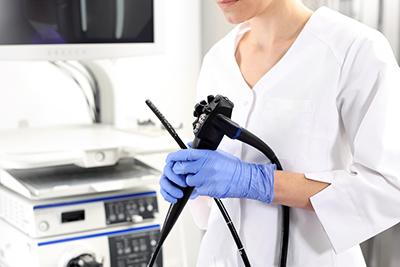The Benefits of Early Detection: How Colon Cancer Screening Can Save Lives
posted: Jan. 27, 2023.

Colon cancer screening is an important diagnostic tool that can save your life. It’s a simple test that can help diagnose colorectal cancer in its early stages when it is the easiest to treat. According to the American Cancer Society, colorectal cancer is the third leading cause of cancer deaths in the United States.
So, when should you have a colon cancer screening? A first colon cancer screening is recommended by the time you are 45 years old, especially if you have a family history of colorectal cancer. You may also need a colon cancer screening earlier if you are experiencing medical issues like these:
- Chronic abdominal pain
- Intestinal polyps or abnormal growths
- Recurrent diarrhea or constipation
- Blood in your stool
Colon cancer screening is typically performed with a procedure known as a colonoscopy. Before the colonoscopy, you will be given a special liquid diet and laxatives to take, which will clean out your colon. You will be instructed to avoid taking any blood thinning medications, including NSAIDs the day before the procedure.
During the colonoscopy, you will be sedated. A thin flexible tube, known as a colonoscope, is inserted into your rectum and guided up into your colon. The colonoscope has a camera on one end, which allows your gastroenterologist to examine the walls of your colon. Your doctor will check for any abnormal tissue, including any growths or polyps. A sample of abnormal tissue may be taken for a biopsy to determine if cancerous cells are present. Growths and polyps can be removed during the procedure.
A colonoscopy takes about 45 minutes but plan on spending between 2 and 3 hours in the office, due to sedation. You must bring a driver with you to bring you home after the procedure.
Colon cancer screenings save lives because they help diagnose early colorectal cancer. Early diagnosis leads to early treatment and a better outcome. To find out more about the importance of colon cancer screening and how it can save your life, talk with an expert. Call your gastroenterologist today.